Mark Anthony Neal's Blog, page 247
February 12, 2021
Rashida Jones On Becoming A Mom, Losing Her Mom, And The 'Big Chapters' Of Life
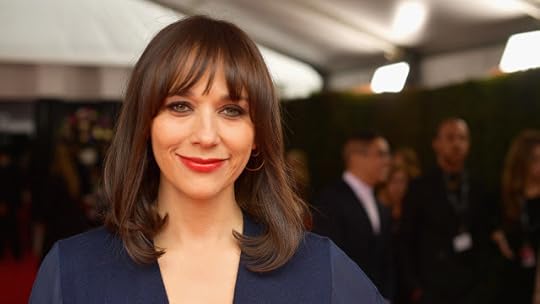
'When it comes to fame, actor Rashida Jones has seen it all. Growing up in Hollywood as the daughter of superstar music producer Quincy Jones and Mod Squad star Peggy Lipton, Jones watched as some people rose to success — and others seemed to fade away. Initially, Jones wanted no part of show business or fame. Instead, she focused on academics, aiming to become a lawyer or a judge. But then, as a student at Harvard, she began doing comedy shows, and her attitude shifted.' -- Fresh Air
John Coltrane: "A Love Supreme" Deep Dive
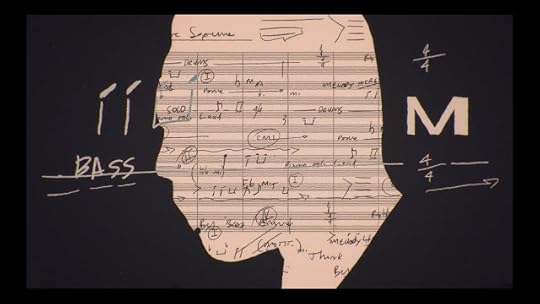
'A Love Supreme was John Coltrane's 1965 magnum opus and self-portrait, a musical declaration of divine devotion and universal connection. With music, animation, and insight, “A Love Supreme” Deep Dive offers a digital doorway into his signature recording, another way to enjoy his music and message, and appreciate Coltrane's mastery. Critic and musician Greg Tate narrates.' -- Verve Records
February 11, 2021
To Be Young, Black & Revolutionary: 'Judas & the Black Messiah' Review by Stephane Dunn
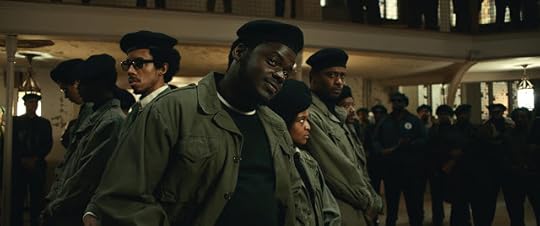
To Be Young, Black & Revolutionary: Judas & the Black Messiah Review
By Stephane Dunn | @DrStephaneDunn | NewBlackMan (in Exile)
“You can murder a revolutionary but you can’t murder a revolution.” – Fred Hampton, Judas and the Black Messiah
Contrary to false narratives of patriotic insurrection and election theft, the US government has committed conspiracies against its citizens. Director Shaka King’s new film Judas and the Black Messiahserves as a blazing reminder that the roots of domestic terror on Black activism are deep. FBI tapes confirm COINTELPRO operations against Dr. King, Malcolm X and any perceived ‘Black threat’ to the status quo. By the late 1960s, the Black Panther Party for Self-Defense, (BPP) founded by Huey Newton and Bobby Seale in 1966, was a central target of mainstream media and the FBI, led by Bureau Director, J. Edgar Hoover. Chicago’s Black Panther Party Chairman Fred Hampton was only twenty-one when the FBI orchestrated his assassination in 1969 after several years of harassment and false imprisonment.
The story is filtered through focus on the figure of real life FBI snitch, ‘Wild Bill” William O’ Neal played discomfortingly well by LaKeith Stanfield. Bill yields to monetary greed and self-preservation as the FBI pressures him to cooperate in destroying Hampton (Daniel Kaluuya) and the Black Panther Party (BPP) or go to jail. O’Neal infiltrated the BPP and Hampton’s inner circle, eventually rising to become Captain of Security. The film mixes archival footage of the BPP’s striking visual and rhetorical self-representation and the FBI crusade led by Hoover’s (Martin Sheen) designation of the Panthers as a subversive threat to American interests.
The perils of being young, Black and revolutionary is made poignantly clear. Late in the film, Hampton’s fellow comrade and love partner Deborah Johnson (Dominique Fishback) poetically theorizes about these costs, casting a too brief but vital interrogation of this reality. How can there be a sustainable transformative revolution if the leaders keep being killed, if the mothers and babies of revolutionaries are killed or they aren’t raised to be freedom fighters because their fathers and mothers are murdered? It is also a fleeting nod to how revolutionary black activist intellectual women’s lives then and now are complicated by such dilemmas.
As the police fire unmercifully inside Fred Hampton’s home, a pregnant Deborah covers him with her body until forced out of the room. The camera remains on Deborah deliberately standing unflinchingly as he is murdered. In a Sundance Festival post-screening talk, the director expressed discomfort with the depth of women’s significance in the film, noting that Hampton’s widow insisted that her character act as she actually had in that moment. He also acknowledged the major role women had in the Black Panther Party particularly the Illinois chapter.
The film’s three Black women, Comrade Judy Horn (Dominique Thorne), who doesn’t entirely escape the narrow confines of Afro-adorned, Black Power tough chick, a comrade’s grieving mom, and Deborah, doesn’t resolve the problematic masculine representation of the BPP and marginalization of Black women’s critical work and influence despite best intentions. More cinematic narrative films on Black freedom movements generally are needed that center the gazes and stories of Black women and take as a starting point Black women and men’s partnership in revolutionary work.
Still, the recovery of Fred Hampton’s BPP story on the heels of a year galvanized by Black Lives Matter is timely. The film is a smack down of the former president and Capitol Hill rioters’ construction of ‘revolution’ and ‘freedom’, words that have been flung carelessly around. In the film, Fred Hampton clarifies these words in his steady refrain, “I am a Revolutionary” and that power rests in loving, serving, and unifying “the people.” He suggests that this is the responsibility of revolution and of being a revolutionary and consequently, the most threatening to the status quo.
We glimpse the BPP’s sophisticated organizational planning and community centered activities - cultural programming, children’s meals and charitable initiatives, and political education to inform revolutionary action. Unfortunately, motion picture narratives have largely neglected or watered down these aspects instead highlighting Party imagery - the uniform of black beret and black leather jacket and snippets of oft repeated fiery discourse. The narrative also highlights Hampton’s efforts to build a diverse coalition of oppressed people across racial and ethnic borders.
FBI and police backlash against his progress uniting Chicago’s gangs, Puerto Rican activists and poor white workers is swift and unceasing. Herein lies part of the film’s contemporary thrust; the diversity among Black Lives Matter protests in the wake of police brutality in 2020 provoked fear and political demonization.
Some BPP historians will undoubtedly have issues with what the film leaves out or adds; a single film rarely bears the weight of such complex history; it interprets and selects an angle, in Judas and the Black Messiah, it’s the traitor who sells Hampton and the Party out, and it’s okay to debate this approach. But we need Hampton’s story and that of the US government’s terroristic activity in order to maintain white patriarchal supremacy. The scenes featuring federal officers plotting gleefully in offices and restaurants to destroy the lives of Black men and women, - of very young ones at that, underscore the brutal might of institutionalized racist power. Stanfield’s portrayal of Bill veers close to deflecting attention away from this because his duplicity and motivation for working with the FBI render him almost too unsympathetic, but the film succeeds in its scorching critique.
In 2020, a swathe of political leaders and Americans denied the indictment of American racism posed by the murders of George Floyd, Breonna Taylor, Ahmaud Arbery and others. In 2021, Judas and the Black Messiah calls us to stay woke about the consistency of white supremacy and racial violence.
***
Stephane Dunn is a writer, filmmaker, and professor. She earned her MA, MFA, and Ph.D. from the University of Notre Dame. Her writings appear in Ms., Vogue.com, CNN.com, and others. She speaks frequently about gender and race particularly in film and popular culture. She is the author of the book, Baad Bitches & Sassy Supermamas: Black Power Action Films. Her screenplay Chicago ’66 has been selected as the Finish Line Screenwriting competition’s inaugural Tirota Social Impact winner.
@font-face {font-family:Helvetica; panose-1:0 0 0 0 0 0 0 0 0 0; mso-font-charset:0; mso-generic-font-family:auto; mso-font-pitch:variable; mso-font-signature:-536870145 1342208091 0 0 415 0;}@font-face {font-family:"Cambria Math"; panose-1:2 4 5 3 5 4 6 3 2 4; mso-font-charset:0; mso-generic-font-family:roman; mso-font-pitch:variable; mso-font-signature:3 0 0 0 1 0;}@font-face {font-family:Calibri; panose-1:2 15 5 2 2 2 4 3 2 4; mso-font-charset:0; mso-generic-font-family:swiss; mso-font-pitch:variable; mso-font-signature:-536859905 -1073732485 9 0 511 0;}p.MsoNormal, li.MsoNormal, div.MsoNormal {mso-style-unhide:no; mso-style-qformat:yes; mso-style-parent:""; margin:0in; mso-pagination:widow-orphan; font-size:12.0pt; font-family:"Calibri",sans-serif; mso-ascii-font-family:Calibri; mso-ascii-theme-font:minor-latin; mso-fareast-font-family:Calibri; mso-fareast-theme-font:minor-latin; mso-hansi-font-family:Calibri; mso-hansi-theme-font:minor-latin; mso-bidi-font-family:"Times New Roman"; mso-bidi-theme-font:minor-bidi;}.MsoChpDefault {mso-style-type:export-only; mso-default-props:yes; font-family:"Calibri",sans-serif; mso-ascii-font-family:Calibri; mso-ascii-theme-font:minor-latin; mso-fareast-font-family:Calibri; mso-fareast-theme-font:minor-latin; mso-hansi-font-family:Calibri; mso-hansi-theme-font:minor-latin; mso-bidi-font-family:"Times New Roman"; mso-bidi-theme-font:minor-bidi;}div.WordSection1 {page:WordSection1;}Left of Black S11 · E14 | Exploring Black Cosmologies Through the Art of Mikael Owunna
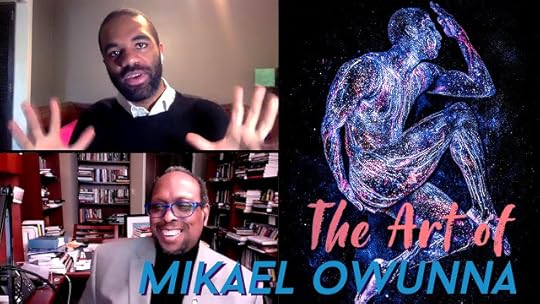
Black bodies have long been associated with death and the site for racial trauma induced by systemic oppression. But how can we unfetter our imagination on how we view the Black body, which ultimately impacts how we all view ourselves? Duke alumnus Mikael Owunna, a queer Nigerian-Swedish American multimedia artist and engineer based in Pittsburgh, Pennsylvania joins Left of Black host Mark Anthony Neal. Mr. Owunna will have his first museum installation at the Contemporary Art Museum of Raleigh located at 409 West Martin Street, Raleigh, NC from February 5 to August 15, 2021.
'Black Moses' Lives On: How Marcus Garvey's Vision Still Resonates
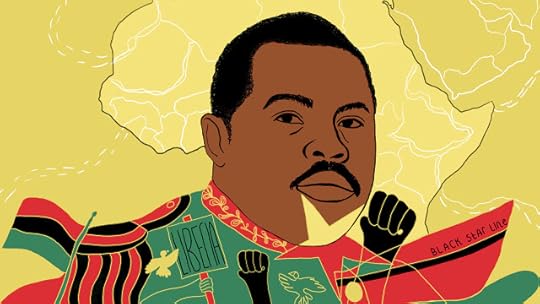
'Decades before Dr. Martin Luther King Jr. and Malcolm X, Marcus Garvey attracted millions with a simple, uncompromising message: Black people deserved nothing less than everything, and if that couldn't happen in the United States, they should return to Africa. Throughline examines the seismic influence and complicated legacy of Marcus Garvey.'
The Queen Of Black Historical Romance Talks Race, Love And History

'Stories about Black history often focus on struggle and suffering—but Beverly Jenkins, the author of more than 40 historical romance novels, has spent her career telling stories about Black love.'-- Code Switch
Def Jam Presents: Through The Lens - Ricky Powell (Episode 2)
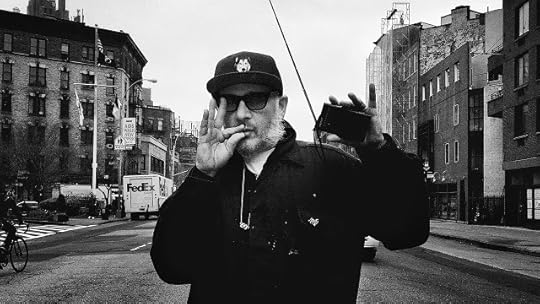
'An ode to the impact of the iconic photography that became synonymous with Def Jam and, its biggest stars, Through The Lens will focuses on the three distinct eras that span the label’s 35 year history to date. Born and raised in New York City, Ricky Powell was a legendary photographer who specialized in the environmental portrait. Powell’s photographs focus on the organic New Yorker. His photographs simultaneously convey intimacy and detachment, as they provide a unique lenses through which the viewer can analyze the mundane. Powell considers the relationship between the photographer and the photograph to be “a chemical connection of some sort”.' -- Def Jam
Charlie Cobb: 'Protest is necessary ... but it is not sufficient.'
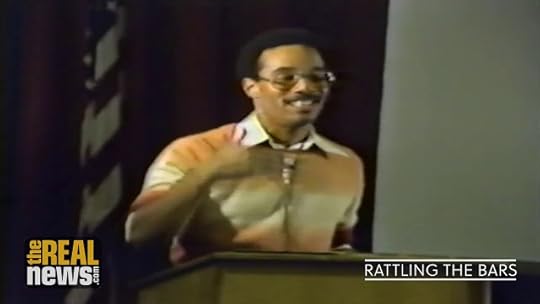
'In 1980, Eddie Conway participated in and helped organize a prisoners’ educational outreach program called “To Say Their Own Words,” where thinkers and scholars came to Maryland Penitentiary and spoke about topics like impending U.S. fascism, the prison-industrial complex, capitalism, increased surveillance, and many other issues that have become even more pressing today. These speakers included Amiri Baraka, Askia Muhammad, Bruce Franklin, Nijole Benokraitis, and Charlie Cobb. As part of an ongoing series for TRNN’s Rattling the Bars, Eddie Conway speaks with these individuals about their predictions in 1980 and how they resonate today. This interview is with longtime civil rights activist, journalist, and author of This Nonviolent Stuff'll Get You Killed, Charlie Cobb.' -- The Real News Network
February 10, 2021
“This Woman’s Work”: Why Cicely Tyson Is So Important to Black Women’s Respect in Hollywood by Stephane Dun
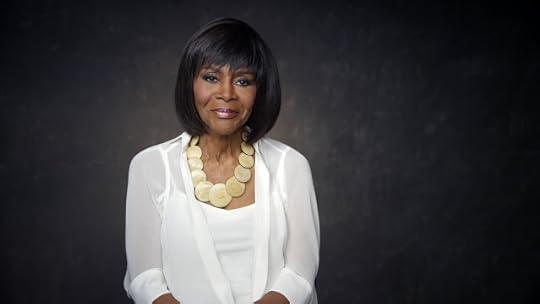
“This Woman’s Work”: Why Cicely Tyson Is So Important to Black Women’s Respect in Hollywood
By Stephane Dunn | @DrStephaneDunn | NewBlackMan (in Exile)
It ain’t merely a Black woman fan or actress thing. Cicely Tyson was a BOSS when it was still so overtly damned hard to be so in Hollywood and American culture generally. The latest Golden Globe shut out of black actresses and actors underscores Tyson’s pioneering career and why race and gender remains a relevant topic in Hollywood.
My own affinity for language, acting, and movies is directly tied to Tyson. She was like the twin tower to Sidney Poitier, a veteran artist-star on a different plane of acting royalty. The way her excellence and proud dark beauty intruded into the whiteness of television and film, how she inhabited a character in body and speech no matter the character’s social status with total conviction and dignity floored me as a child television and film lover. I wanted to captivate people with language and performance too. I loved seeing her in the pages of magazines rocking her natural hair as she most often did in cornrows and afros. She was the essence of Black and American style and a woman supremely comfortable with identity.
On screen, she was simply unforgettable. I’ve never shaken the emotional devastation I felt watching Tyson in the two roles that cemented her as the defining actress of her generation. In The Autobiography of Miss Jane Pittman (1974), she plays the hundred year old plus former enslaved woman who takes us back to the terrifying days of post-emancipation when the KKK arose and terrorized Black people through to the Civil Rights Movement era. We see our aged, fragile protagonist striking a blow against segregation in an agonizing and beautiful scene. Tyson’s Miss Jane Pittman bends, excruciatingly slow, and takes a sip in the whites only fountain under the restrained but hateful gaze of the keepers of that system. To this day, there are numerous scenes of her Emmy award winning performance that I cannot allow my mind’s eye to linger upon. Cicely Tyson breaks my heart too much.
When she took on A Woman Called Moses (1978) in the first major film treatment of the Harriet Tubman story, she was perfect casting, channeling the divine courageous spirit of the legendary underground railroad conductor. Before these iconic television roles, Tyson made history on the big screen playing the wife of Paul Winfield’s character in Sounder (1973), a story about a poor family of black sharecroppers who are torn apart when the husband is arrested for petty theft. She earned an academy award nomination for best actress in a night of firsts as two black women that year (1974) Tyson and Diana Ross for Lady Sings the Blues, were nominated in that elite category and Winfield was nominated in the best actor category. She received sixteen Emmy nominations and won three, the last in 2020 as a guest actress on Ophelia Harkness. Tyson was also given a Kennedy Center lifetime achievement award in 2015. During the 2018 Motion Pictures Governor’s Awards, the then ninety-one year old Tyson was given an Honorary Oscar, capping off a career that was still going strong.
But as the Academy honored her, embarrassingly too late in my mind, I felt indignant on her behalf - if the industry and larger society’s racial politics had not been in the way, what other diverse roles would she have been able to chew up and throw down leaving us breathless? No doubt her body of work is impressively broad, from her Tony award winning role in Trip to Bountiful (2013) in theatre to comedic roles sharing the screen with legends such as Richard Pryor. She starring or co-starred in an array of television series, including her Emmy winning role as the mother of Viola Davis’s title character in How to Get Away with Murder.
How many more accolades and roles would be a part of her body of work if it were not for that raced, glass ceiling in Hollywood, just now finally showing signs of cracking? Tyler Perry naming one of the sound stages in his Atlanta studio in honor of Tyson and Poitier, our two towering legends, was a given. But despite her lethal acting chops, and like so many black actresses before her and since, Tyson couldn’t count on one taken for granted career defining role after another like Katherine Hepburn, Meryl Streep or Nicole Kidman as well as other white actresses that would allow her to fully stretch and bend the limitless reservoir of her gift.
In a 2014 Hollywood Reporter interview, Tyson said that her intent was always to highlight the humanity of any character she played and she didn’t see why race should impose limitations on that: “Why we should be treated differently simply because of the color of our skin is far beyond me.” She embraced that her career broke ground for black actresses like Viola Davis that shared the same artist intention, “. . . if I have, in some way, been the inspiration for any of them, I will feel that I have accomplished what I set out to do, and that is to break the mold and the concept that limited people’s vision of what we, as black women, or black actresses, could do in this business.”
I held a life-long secret desire to meet Tyson, bask in her presence, and simply thank her. In 2015, she attended graduation at Morehouse College. She had been at our commencement previously in 2009 to receive an honorary degree, the year I was very pregnant and had to miss graduation. But I was beside myself with her sitting just several rows in front and to the right of me at that May 2015 ceremony. She was there to keep a promise to one of our graduates, a student of mine who was also my work study assistant. He had attended Cicely Tyson’s performing arts high school in New Jersey, and she helped steer him to Morehouse. During the entire commencement, I stared at her side profile and the back of her head.
At the college president’s brunch later, the extraordinary happened. My student brought me over to the table where Cicely Tyson was seated and introduced me to her. She rose, regal as ever even at that advanced age, and greeted me. I think we shook hands. She gazed at me, piercingly but relatively brief. I couldn’t say to her what I wanted to in the manner I had imagined and practiced saying for so many years. I am unsure that my “hello” was even audible. I don’t remember if I said the actual words ‘thank you.’ I took no picture with her nor did I attempt to get so much as an autograph on a napkin. She was there admirably and humbly to support our graduating student’s journey, bearing witness to his achievement and full-filling her promise to him. She was not there to be a celebrity guest, and she certainly wasn’t there to be bothered by a dithering fan like me.
When I received the late evening text that my great, shining tower had left us now too at age 96, I paused at the kitchen stove over dinner and sat unable to articulate to my son who had passed and why I was struck momentarily speechless. It wasn’t until the middle of the night, 2:00 am in the morning to be exact, lying in bed not sleeping, that the dam of words broke, and I realized what still needed to be said and what Hollywood needs to recognize in full and say too, not just us Black girls, Thank you, Ms. Tyson. RESPECT.
***
Stephane Dunn is a writer, filmmaker, and professor. She earned her MA, MFA, and Ph.D. from the University of Notre Dame. Her writings appear in Ms., Vogue.com, CNN.com, and others. She speaks frequently about gender and race particularly in film and popular culture. She is the author of the book, Baad Bitches & Sassy Supermamas: Black Power Action Films. Her screenplay Chicago ’66 has been selected as the Finish Line Screenwriting competition’s inaugural Tirota Social Impact winner.
Vocalo: James Spooner Talks Basquiat, Filmmaking and Afro-punk
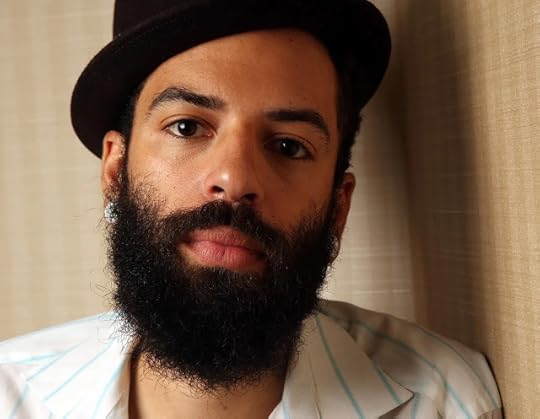 'James Spooner is a founder of the Afro-punk movement, and director of the seminal film Afro-Punk. Spooner recently directed a Part Two of a mini documentary series focused on the musical influences of Jean-Michel Basquiat, Time Decorated. He sat down with Vocalo to talk about Afro-Punk, the No Wave movement and the cultural impact of the musical underground.'
'James Spooner is a founder of the Afro-punk movement, and director of the seminal film Afro-Punk. Spooner recently directed a Part Two of a mini documentary series focused on the musical influences of Jean-Michel Basquiat, Time Decorated. He sat down with Vocalo to talk about Afro-Punk, the No Wave movement and the cultural impact of the musical underground.'
Mark Anthony Neal's Blog
- Mark Anthony Neal's profile
- 30 followers



